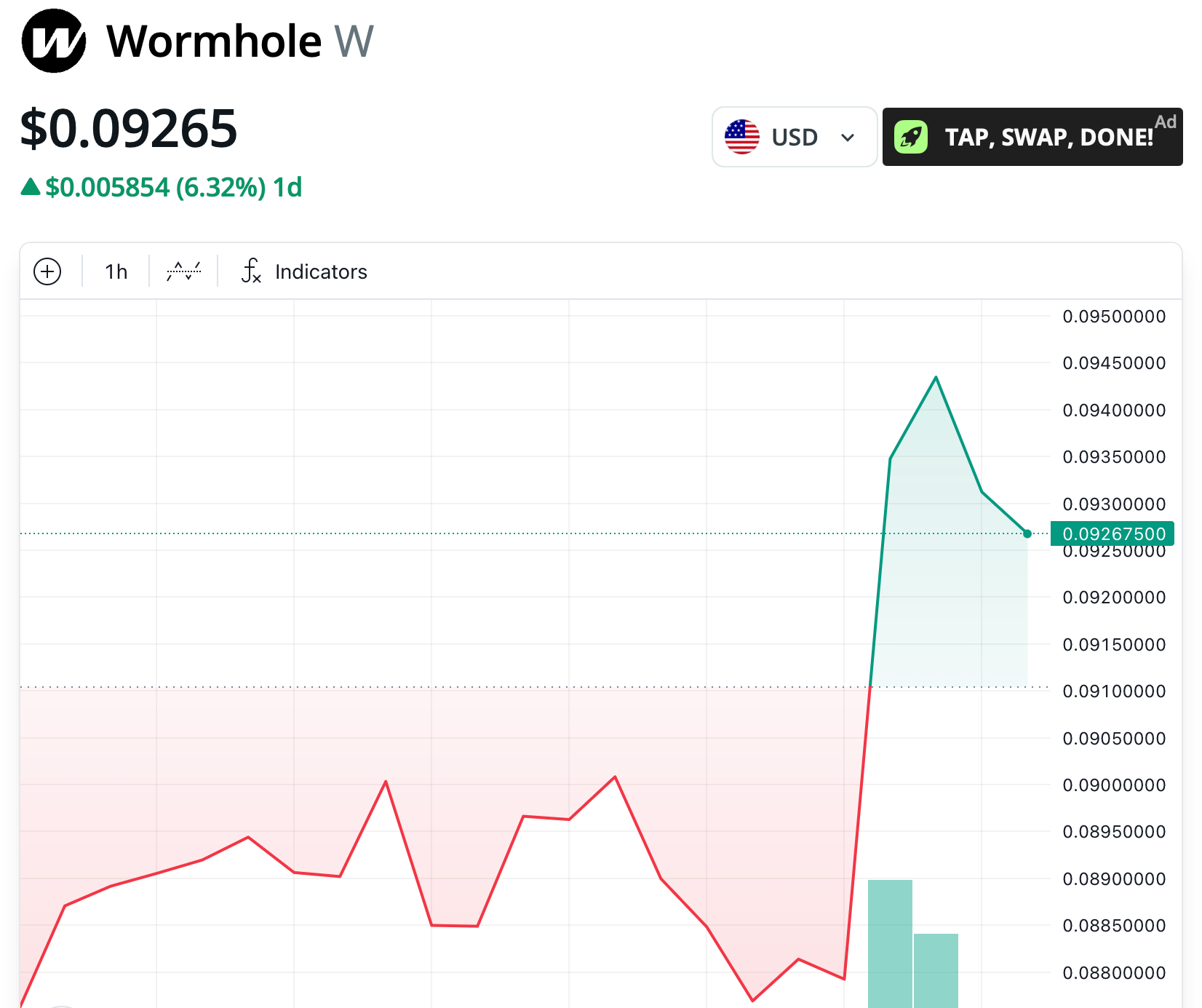Wormhole’s native token has had a tough time since launch, debuting at $1.66 before dropping significantly despite the general crypto market’s bull cycle.

Wormhole, an interoperability protocol facilitating asset transfers between blockchains, announced updated tokenomics to its native Wormhole
token, including a token reserve and more yield for stakers. The changes could affect the protocol’s governance, as staked Wormhole tokens allocate voting power to delegates.
According to a Wednesday announcement, three main changes are coming to the Wormhole token: a W reserve funded with protocol fees and revenue, a 4% base yield for staking with higher rewards for active ecosystem participants, and a change from bulk unlocks to biweekly unlocks.
“The goal of Wormhole Contributors is to significantly expand the asset transfer and messaging volume that Wormhole facilitates over the next 1-2 years,” the protocol said. According to Wormhole, more tokens will be locked as adoption takes place and revenue filters back to the company.
Founded in late 2020 as a bridge to transfer tokens between Ethereum and Solana, Wormhole launched its native token on April 3, 2024.
The token traded at $1.66 on its debut, but plummeted to $0.54 in about 10 trading days. The token price jumped over 6.3% on the tokenomics revision on Wednesday.

Wormhole token price on Sept. 17, 2025. Source:
Wormhole’s announcement drew significant attention on X, though some users expressed disappointment over the absence of a second airdrop or a buyback-and-burn mechanism in the roadmap. Such mechanisms are often used to reduce a token’s supply in hopes of boosting its price.
Wormhole’s new tokenomics could affect the governance of the protocol. The W token serves as a governance mechanism: when users stake their W tokens, they can allocate power to delegates, who vote on the running of the protocol.
Currently, $45 million in W is staked, with 485 million W having been used in votes.

Source: syndd.eth
Dan Reecer, co-founder of the Wormhole Foundation, has the most significant influence over protocol governance with $30.5 million in Wormhole staked at this writing, representing 25.1% of voting power.
Cointelegraph reached out to Wormhole for comment, but had not received a reply at time of publication.
Related: Flow Traders, Wormhole partner to boost cross-chain liquidity
Wormhole competes in growing crypto sectors
Interoperability protocols such as Wormhole sit at a juncture in crypto that has received more attention this year: the ability to launch assets across different blockchains and ecosystems.
This functionality is helpful for stablecoin and RWA tokenization issuers, who need to deploy assets across multiple chains.
Some competitors to Wormhole include crosschain messaging service Chainlink, omnichannel deployer LayerZero and interoperability protocol Axelar.










